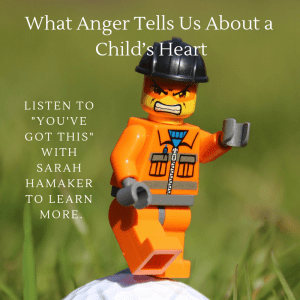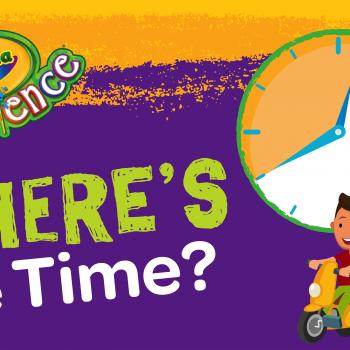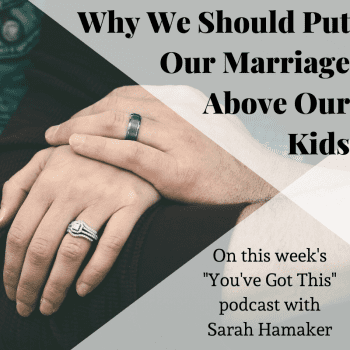
The following is an excerpt from my interview with Dr. Scott Turansky on my podcast, “You’ve Got This.”
Dr. Scott Turansky is the co-founder of the National Center for Biblical Parenting. He holds two masters degrees from Western Conservative Baptist Seminary in Portland Oregon. He also has a doctorate in organizational management and strategic planning from Fuller Theological Seminary. He’s married to Carrie, and has five children and four grandchildren. Scott has been a pastor for more than 30 years.
What does anger tell us about a child’s heart?
Scott: When you watch a detective show and they’re trying to solve the murder mystery or whatever it is, they’ll often say, “Follow the money. If you follow the money, you’ll find the person who’s guilty of the crime.” When we’re working with the heart, we can often follow the emotion. If we follow the emotion, it’s often an indicator of something that’s going on inside the heart. Sometimes it’s blatant selfishness, sometimes it’s a misguided belief, sometimes it’s just a strong desire for something that isn’t even sinful or wrong, it’s just that the child doesn’t know when to let it go. That letting it go takes skill—it’s not something that comes naturally to some kids. When we try to redirect them, it can elicit this angry response inside of their heart.
How should a parent respond to an angry child?
Scott: I think a lot of times, parents themselves get angry when their kids get angry. now you’ve got two angry people, and that just really complicates the whole situation. My program teaches that to help a child with anger, we start with teaching children to give up their agenda, follow instructions and develop a sense of obligation because that starts the heart to move in the right direction. So when it comes to actually bringing about change in a child, I usually recommend the parents to not start with the anger because it’’ a symptom of something going on.
When we directly work with anger, we start by identifying the cues. The cue are the indicators that say, “I’m about to lose control.” They are usually biological things that we can see. I usually ask kids, “Let’s not think about you for a minute, let’s think about your mom. How can you tell when your mom’s starting to get angry?” The child will say something like, “Well, her eyes get big and her neck sticks out.” I say, “Okay, how can you tell when your dad gets angry?” “Well, he has this vein on the side of his neck that’s all it starts bulging.” Those are indicators of anger.
Then I tell the child, “How can you tell when you’re starting to get angry?” We go through a host of different things. It’s different for each child but some children will say “I clench my hands, grit my teeth, my eyes get big or eyes get narrow.” A lot of kids say, “I feel like I’m getting hot.” Those are all the cues that tell me “I’m starting to get angry. If I don’t do something about this, I’m going to have a problem.” So those initial cues can be helpful if we’re helping children develop an anger management plan.
Why are anger cues so important?
Scott: Anger cues are the first step in developing an anger management plan. Some children do feel like they ramp up really quickly, or parents will even say, “My child goes from 0 to 60 instantly.” What we’re saying is “There are indicators that this child’s frustration starting to boil, and we want to pick up on those in advance.” This is a self-awareness approach that we’re trying to use. The reason we do that is because James 1:19 and 20 says, “Be quick to hear, slow to speak and slow to get angry.” How can you be slow to get angry if you can’t see it coming on? So we’re trying to help our children experience those cues, be aware of them so they know they might be getting anger and be able to develop a plan to defuse their own anger.
To hear more from Scott about anger in kids, listen to “What Anger Tells Us About a Child’s Heart” on the “You’ve Got This” podcast.












